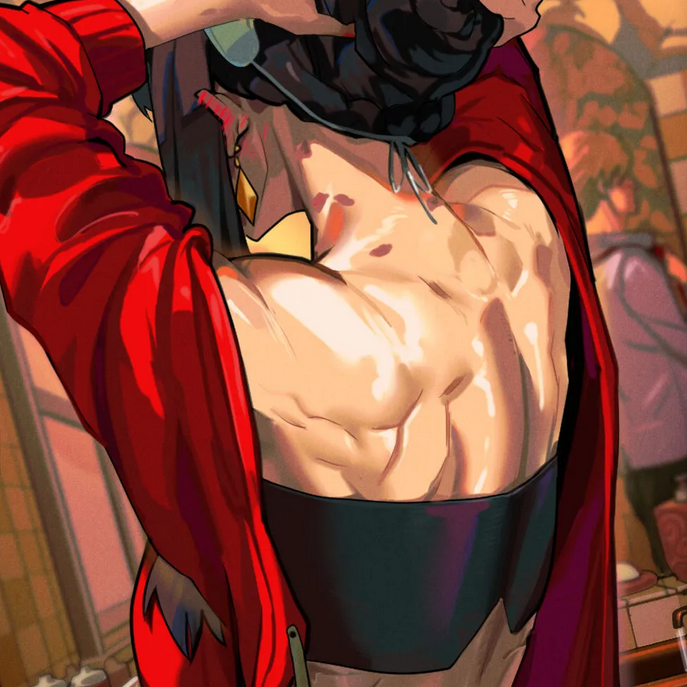Yeah I guess it was originally opened as Danny’s Donuts and the name Denny’s came about to avoid confusion with another chain.
- 0 Posts
- 87 Comments
Idk I feel like this would be more of a Boardwalk Empire kind of situation or similar since you’ve got different products for the enterprise to push. You’ve got T, E, puberty blockers, possibly underground surgery centers, people needing fake documents.

 7·7 days ago
7·7 days agoI had one of them in my left arm right at like the bottom of the shoulder muscle. Only thing that happened with it was the pore like… Stretched out until it was about the size of the pump needle you use for like a basketball. Even after finally getting the hair out of it the pore never fully closed back up. I like to joke that it’s my vaccine injection port but it’s like an inch or so too low for where they usually put them.

 18·9 days ago
18·9 days agoLast numbers I saw is that Trump more or less got the same amount of votes as 2020 while Harris got 15 million less votes than Biden.
I personally injure my own large intestine for gluttony.

 6·27 days ago
6·27 days agoIf I had to guess it’s because JD is more of a general physician. Strange was a neurosurgeon before the accident that crippled his hands and led him to study the Mystic Arts. So not only can he not perform surgery anymore without magic but if he was working on you, then you were pretty much in life or death territory anyway.

 2·2 months ago
2·2 months agoI just started getting that set up actually! I’m working on getting my old games either ripped if the disks work or finding a working backup if they don’t.

 3·2 months ago
3·2 months agoI’m so sad that my disk 3 on my original copy is nonfunctional. I loved that game back in the day but I’ve never been able to finish it.

 10·2 months ago
10·2 months agoI believe that would be one who prefers to fuck other people, but on the couch.
Diversity only makes the Dad Force stronger.

 8·2 months ago
8·2 months agoJoke’s on you, I’m with both of them! Go Woke, go Broke? More like, “Go Woke because broke” right? R-right?

 6·2 months ago
6·2 months agoIt’s true. He is in fact way more Him than I was ever capable of being.
I am simply built differently… alternatively. Some might even go so far as to say incorrectly. I know I would.

 3·2 months ago
3·2 months agoOh yeah you’re right. I just looked it back up and this article says one of the commentators was getting $400k a month, a $100k signing bonus, and additional performance based payment in exchange for I guess 4 videos a week.

 35·2 months ago
35·2 months agoI guess according to the allegations only the founders of Tenet Media or whatever it was called knew the money was coming from Russia and they hid it from the talking heads.
But like… How much money do these people have to be getting paid before they have a thought to question where it’s coming from? Dim Tool was apparently getting like $100k a WEEK from them. Like at what point does it start to get suspicious?
Edit: I was misremembering. Apparently it was $100k a week so that’s $400k a month.

 69·2 months ago
69·2 months agoI’ve gotten tricked out of so many things by those blasted Fae. My gender, my sexual attraction, my attention, and precisely 1 (one) of my pronouns.
Now I go by He/They because I can never be Him.
Does this stack with the clipboard, HiVis vest, or ladder buffs? Asking for a friend.

 39·3 months ago
39·3 months agoFrom Wikipedia:
In November 2022, Gearbox Entertainment acquired the Risk of Rain IP. Hopoo Games remains an independent studio. Hopoo now states that they are working on other games and projects.
The Steam page for the DLC also lists Gearbox Software as the developer and Gearbox Publishing as the publisher so yeah. Seems accurate.
Looking at what appears to be this guy’s twitter I think that’s probably accurate. One of the first things I saw looking for this guy’s profile was this and I can’t see any other explanation for the term “Straightriotic lovemaking”
That’s just how Vash’s arm is even in the old version actually! Idk about the new version because I haven’t gotten around to watching the Trigun reboot, but yeah Vash’s arm always stopped at the top of his bicep.




I think the weird ones with the horns are usually called Scalies. Wait no I suppose goats exist… Carry on.
Jokes aside this comment made me laugh so hard because before I figured out I was ace and was still forcing myself to keep up a “normal” sex drive for my ex the only porn that did it for me was the super degenerate kind. So for the longest time I thought I had just a bunch of weird fetishes but in reality I was just so asexual that it was indistinguishable from a severe porn addiction like some Degenerate Horseshoe Theory.
So I guess the point is just: Become Ungovernable. Beat your meat to Furry Porn